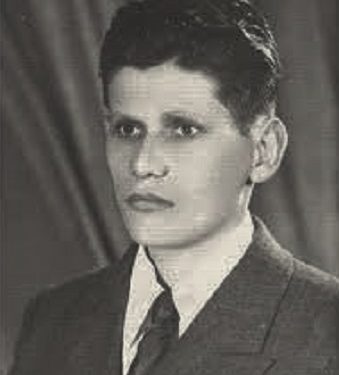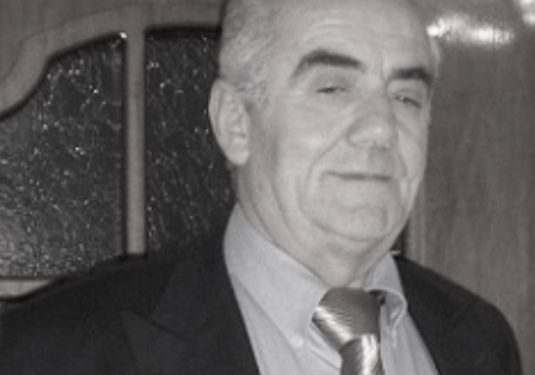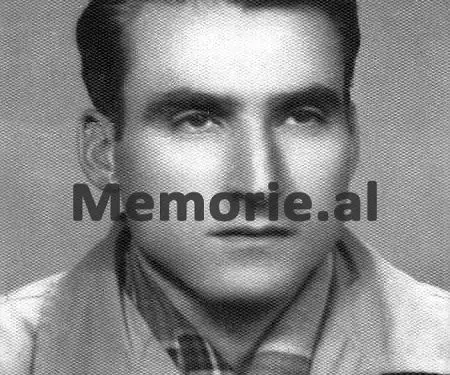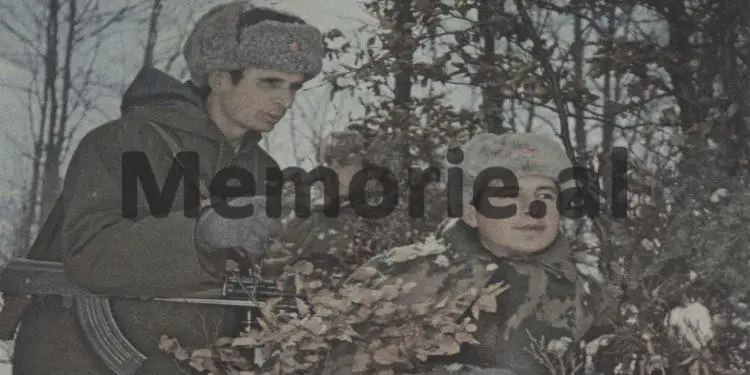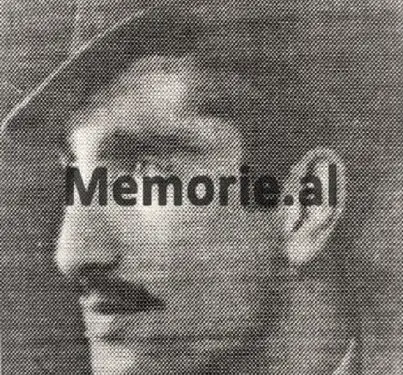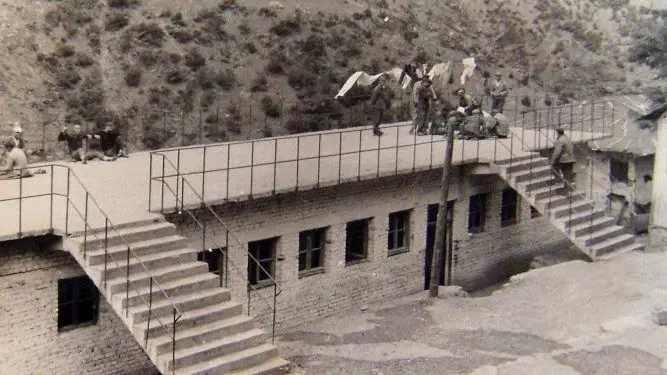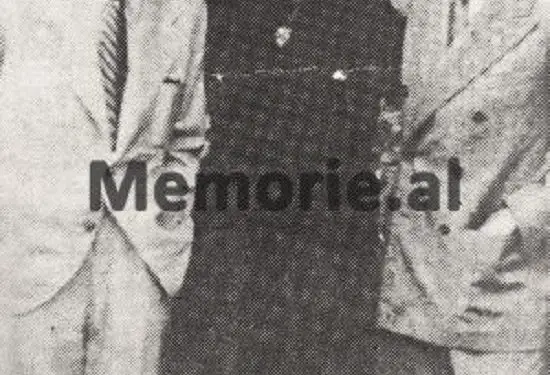By Kabil Bushati
– Calvary of the Begović family originating from Podgorica; Sulejmani, tried several times to escape, suffered for a long time in communist prisons, Ketoja, a caliber singer, worked as a shovel worker, Hamdiu, all his life monitored by Sigurimi!
Memorie.al / At the beginning of 1991, everyone remembers in Shkodër, a tall old man, who went in and out of the newly created association of political convicts. He was the vice president of this association, Sulejman Begoviqi, who, despite his advanced age, was very active and very sweet-mouthed. He was good-hearted, not lazy and serious. You could see it with Pjeter Arbnor, with Ali Spahina, with Refik Bushati, and with former political prisoners, who at that time were very poor and the plight was no match for the plight. It radiated peace and kindness.
Sulejman (Sulë) Begoviqi was born in Podgorica, Montenegro, in 1921. He grew up in a family of big and well-known merchants, where his father, Kapllani, was among the most powerful merchants of Cetinje in those years. After graduating from high school in Cetinje, with excellent results, for technician-geometry, the family sent Sulejmani, (at their own expense) to Italy, to complete his higher studies, for Economics-Finance, where again, his ingenuity stood out his in lessons. He completed his studies in Italy and returned to his homeland.
Very good knowledge of foreign languages, such as: English, Italian, French and Serbo-Croatian. In 1943, his father died and they decided to come to Shkodër, Albania, as his mother was the daughter of Shkodre, the sister of shoe merchants, Tahir and Osman Hoxha. They moved to the beloved Shkodra, with the exception of one brother, Sheuqet, who had finished school in Bosnia and was employed there, in Sarajevo. The connection with Shkodra was very great, for all the Albanians of Montenegro, because then, at that time, there were reverse marriages between them and Shkodra.
Then, it was wartime and there was actually a fear of the bombing of Podgorica, by the allied Anglo-American aviation, which happened several times, since all the German forces of the Balkans were stationed there. Allied forces were forced to carry out these bombings. In this period, there was an influx of Albanians from Montenegro towards Shkodra. Most of them stayed finally and forever in Shkodër. In everyday language, they are called Podgorica and the city of Shkodra loves them as its own and has treated them well. They have never felt like foreigners in this city.
After taking refuge in Shkodër, Sulejmani, together with his brother, were assigned to work in the Anglo-American mission, in the UNRRA Society, based in Durrës. Sulejmani, as a geometer and his brother, as a translator. During his stay in this city, Sula met well-known intellectuals of this city, such as Qemal Kacmoli, Ihsan Podgorica, Arshi Pipa and Myzafer Pipa, all these young people had anti-communist ideals. The first embryonic steps had begun to organize the first Liberal-Democratic party. This organization operated in complete secrecy and began to distribute tracts among the families of Durrës, where they announced the formation of this party.
The tracts were written by hand and after a while, they were dictated by calligraphy. Even Sulejman’s work, which connected him daily with the English, had a bad effect. Despite the fact that he was in a working relationship with foreigners and hung out in cafes with them, or went for walks in the afternoons, he caught the eye of the State Security, who put him under surveillance. The calligraphy of the tracts and association with the English caused him to be arrested in October 1946, himself the fifth. They keep him in one of the dungeons of the tunnels of a ministry and sentence him to 5 years in prison, accusing him of “hostile activity against the people’s power”. After that, he served his sentence in Tirana prison and later in Vlora prison.
In the last year of the sentence, he is released as a result of an amnesty. After a few months, he returns to Shkodër, is rehabilitated and is assigned to work in Koplik, 18 km away from Shkodra, in the Trading Company of transaction, as deputy responsible and head of account. There, you see the extreme suffering that the Great Highlands were experiencing and the fierce communist repression, among the Highlanders.
In 1956, with the mediation of his well-known families in that area, who had prepared the ground, he tried to escape to Yugoslavia, with Arshi Pipa and Feime Pipa, (brother and sister, originally from Libohova and Gjirokastra), but already Shkodranized, became part of the Shkodran aristocracy. Arshiu had just been released from prison. Arshiu and Feimen cross the border, while Sula is unable to cross it and, as fate would have it, she would experience the Albanian prison again later and go through endless horrors…!
I can’t stay without mentioning Sulejman’s brother, Keto Begovic, instead of paying homage here. In 1958, he was returned to Shkodër, from Sarajevo. This one, Sheuqeti, whom I mentioned at the beginning of this article, who was in Sarajevo, is returned by the Yugoslavs, as they suspect that he was a spy for Albania. The UDB suspected, allegedly, that Ketoja was working on behalf of the Albanian Security Service?!
He was a singer of caliber, of the same rank as Safet Isović, in fact, the two had been friends together. He also left his fiancee there, the famous singer, Beba Selimovic, even Keto’s daughter, today bears Beba’s name as a memory. Beba Selimovic was a very impressive singer from Sarajevo. When Ketoja came out, for the first time in Shkodra, newly arrived from Yugoslavia, with pointed shoes, with thin tops, dressed stylishly, he made his youth his own, and forced the young people of Shkodra to order such shoes, in the special shoe shop of Pjaca.
It is already known that, at that time, the young people of Shkodra were very fond of fashion, despite the fact that the state did not like modern clothes. This one started working as a shoemaker and was a good craftsman. He sang very well, Bosnian Slavic songs and created sympathy among the people of Shkodran. He performed weddings among the Podgorica residents of Shkodra, weddings that even today are unattainable for the quality of their musicality. At the same time, he also learned Shkodra songs, which together with Burhan Çuliqi, (with accordion), he sang at weddings and family celebrations, mixed with Shkodra songs.
But at that time, they didn’t allow you to sing Slavic songs. Dozens of times, he was called to the office of the Artisanat cadre, for the Slavic songs he sang. He was never allowed to sing on the stage of the “Migjeni” Theater, even then, when he was the director of the theater, he was from Podgorica. None of his songs exist even on “Radio Shkodra”, at least recorded, at a time when there are recordings on Radio-Podgorica (formerly Radio-Titogradi). Today, the former director of the theater from Podgorica and some employee of Radio-Shkodra, or cultural inspector, give daily lectures on democracy, even in the print media.
The former director also writes books about the history of the song in Shkodër, and has republished it, but the fact is strange that even today, he does not mention Keto Begovic and Cyl Elez. Who is he afraid of? On the stage of the “Migjeni” theater, village artistic groups sang, all kinds of amateur singers, turli rhapsody, but Keto Begoviqi and Cyl Elezi(!?) never sang. He had a brilliant voice, which is remembered in Shkodër even to this day. Keto died as soon as democracy entered, in 1992, after singing at a wedding, some 15 songs in a row, with Violeta Zefi. Shkodra saw off Keto with tears in his eyes, this great singer, who was never allowed to sing on the famous stage of Shkodra.
In 1958, Sulejmani was appointed head of finance at the Canning Factory in Shkodër, where he worked for several years in a row. When the break with the Soviets and the connection with the Chinese happened, in Shkodra of that period, there were many barsoletas and battered ones. And Sulejmani, in this context, among friends at the factory, expresses his dissatisfaction with the Chinese. But one of the friends was really a “friend”. He immediately goes to the Interior Branch and spies on him. On 24.08.1966, he was arrested for the second time. They immediately raided the house of Hamdi’s brother, even his library, and took all the translations in notes that he had made over the years.
After the investigation, he appeared before the Military Court on 08.11.1966 and was sentenced to 8 years in prison for agitation and propaganda. Once again, the ordeal of suffering begins for Suleiman and his family. He was sent to Elbasan and then to Burrel prison. In 1968, together with his friends, he tried to blow up the prison, but without success. They send them to Spaç, where they experience the most inhumane tortures on their bodies. In the middle of winter, they stripped them almost naked and put them in barrels of cold water until they passed out. They dunked them headfirst into the water until they no longer bubbled.
In a meeting with the former prime minister of the time, Mehmet Shehu, a convict, who had saved the life of these criminal, shows him the moldy corn bread and says: “At least drown us all at once and not one by one, poison our blood with moldy bread…”! On May 21, 1973, the Spaçi Revolt broke out, now known as the most powerful revolt that political prisoners have made. Here too, Sulejmani participates, with hundreds of others who shook the Albanian totalitarian state to its foundations.
In February 1974, he was released from prison and assigned to work at the “Perlat Rexhepi” Farm in Shtoji, as a laborer, planting and pruning grape vines. After two years, he moved to the Rruga-Ura Enterprise, now although he was old, they gave him picks and shovels to fill the potholes with gravel. Wherever he went, Sulejman had behind him the uniforms of the Internal Branch, which were put on his back and did not come off; one of them was even his neighbor.
They watched him when he went to work and when he came home. Tired and crushed by the years in prison, remaining single, in 1981, he retired. His life was very sad and boring. I live in the house of my brother, Hamdi, who also kept him in prison.
The communist state behaved very badly, even with Sule’s other brother, Hamdi. I will mention only one fact. Hamdiu worked in the Food Company and was a master in repairing cars. Only for an article, which the journalist N.D. did in the “Voice of the People”, accusing Hamdiu, together with another friend, of misappropriation of property, the investigator came and found no evidence that he was putting both of them in prison.
They also treated Hamdi’s wife in the same way. She worked as a cook in a dormitory, but even there she was not allowed, because the Party was afraid that she would poison the dormitories, and she was fired! The same thing happened with the nephews and nieces of Sulejman Begović, they all left without continuing the higher schools.
In 1986, with the help of some of his friends, he tried to escape again. This time, he had made a plan to cross the border from the Greek side. But again the spies were after him…! In every car he got into, he saw spies, one of his neighbors. This time too, the escape plan failed. In December of ’90, hope was born for Sulejmani and his brothers. With the creation of the Association of Former Political Prisoners and Persecuted, he was elected vice-president for the district of Shkodra. He died on 18.10.97. He failed to enjoy democracy, to which he also dedicated his life. Memorie.al




